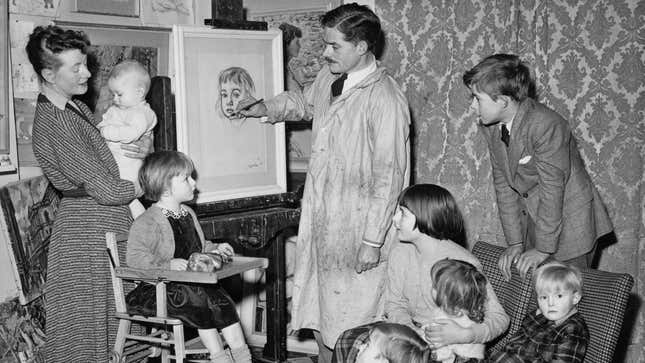Having a Creative Parent Is a Privilege, But It Isn’t Nepotism
I would bet Kristen Stewart didn't land the lead role in Twilight because her mom was a script supervisor for Flintstones: Viva Rock Vegas.
The ExpertsWork

Does it feel like no one is talking about nepo babies these days?! Just kidding, my phone is still hot from texting about New York Magazine’s recent feature on famous people who were genetically predisposed to the limelight through their parent’s careers and connections. I’d wager the ink spilled discussing all the pieces that made up the package—with titles like “How is a Nepo Baby Born?” to “Where Should You Send Your Nepo Baby to High School?”—was a hundred times the amount of the pieces themselves.
But I didn’t log on to shit on NYMag’s piece, which was ultimately a great conversation starter. I just have one bone to pick with them: While having creative parents is a privilege, not every parental privilege is nepotism, and not every creative is wealthy—which is the real, cruel pipeline to nepotism.
One section of the extensively mapped out nepo baby universe was titled “Cultural Capital Babies: The hipper stepsibling of the industry baby” (the industry baby was described as one who “didn’t inherit a famous name, but did inherit connections and knowledge of the business.”) I appreciate NYMag acknowledging that this connection is much, much “lesser”—but frankly, I’m inclined to think they chose to sow chaos by suggesting Jaeden Martell’s dad being an L.A.-based chef is on par with Sigourney Weaver’s dad being the president of NBC. Cultural Capital Babies certainly have access to knowledge of an industry, as they describe, but I refuse to accept that that privilege is nepotism.
-

-

-

-

-

-

-

-

-

-

-

-

-

-

-

-

-

-

-

-

-

-

-

-

-

-

-

-

-

-

-

-

-

-

-

-

-

-

-

-








































